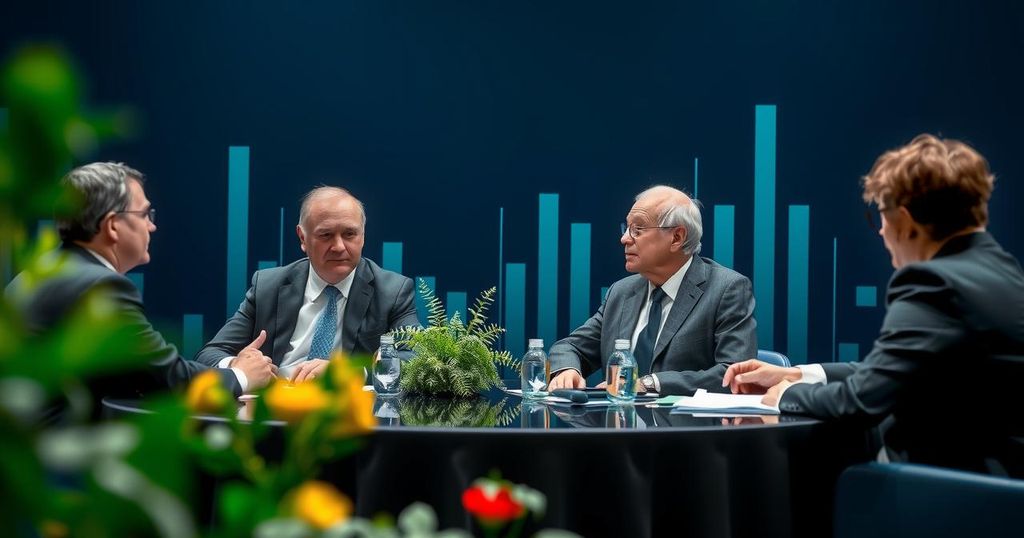The G20 has adopted principles to promote bioeconomy, aiming to integrate economic growth with environmental sustainability. This initiative is especially vital in addressing climate change’s impacts. By endorsing voluntary guidelines, nations are encouraged to adopt practices that leverage renewable resources and promote ecological health, with Brazil playing a leading role in these efforts.
The G20 member nations have recently established principles aimed at aligning development with sustainability through nature-based solutions. This initiative, the Bioeconomy, was a focal point during Brazil’s presidency at the G20 Forum. With the pressing challenges of climate change manifesting as extreme weather events globally, the discussion on the Bioeconomy has become increasingly crucial. Bioeconomy refers to economic growth that simultaneously protects the environment, advocating for renewable biological resources rather than reliance on fossil fuels. Everyday actions, such as recycling or using biodegradable materials, demonstrate personal contributions to the Bioeconomy. At the G20 Bioeconomy meeting in Rio de Janeiro in September, participants endorsed “Ten Voluntary and Non-Binding High-Level Principles on Bioeconomy.” These principles aim to integrate indigenous perspectives, share best practices globally, develop consistent methodologies for sustainability assessments, and promote ecosystem restoration. While these guidelines are not mandatory for member countries, a commitment to their implementation has been expressed unanimously. Currently, the bioeconomy contributes significantly to Brazil’s economy, accounting for 25% of its Gross Domestic Product, as reported by the Getulio Vargas Foundation. In August, Brazil announced plans for a National Strategy for Bioeconomy, which will lay the groundwork for future initiatives in bioindustries and other sectors. Discussions within the G20 framework are categorized into three main themes: the role of science and technology in bioeconomy, the sustainable use of biodiversity, and the bioeconomy’s contribution to sustainable progress. Marina Silva, Brazil’s Minister of the Environment and Climate Change, underscored the necessity for an integrated approach to Bioeconomy that extends beyond just environmental sectors. She pointed out that inadequate international standards impede cohesive global efforts toward realizing an ecological transition, thus emphasizing the need for cooperative action among governments based on shared frameworks for development.
The concept of bioeconomy encompasses economic practices that leverage renewable resources and seek to mitigate environmental harm. Its relevance has intensified due to the urgent threats posed by climate change, as evidenced by increasing global temperatures and natural disasters. The G20’s Bioeconomy initiative reflects a collective intent among major economies to foster sustainability while stimulating economic growth. The initiative is particularly significant for Brazil, given the country’s substantial contributions to bioeconomic practices and its ongoing efforts to center ecological considerations in development policies.
In summary, the G20’s recent commitments toward the bioeconomy highlight a progressive approach to harmonize economic advancement with environmental stewardship. By adhering to voluntary principles that prioritize sustainability, nations can collectively foster a transformative shift toward a bioeconomy that enhances quality of life while protecting natural ecosystems. The emphasis on integrating diverse perspectives and methodologies positions the G20 initiative as a potentially pivotal strategy in combating climate challenges and achieving sustainable development goals.
Original Source: www.g20.org







